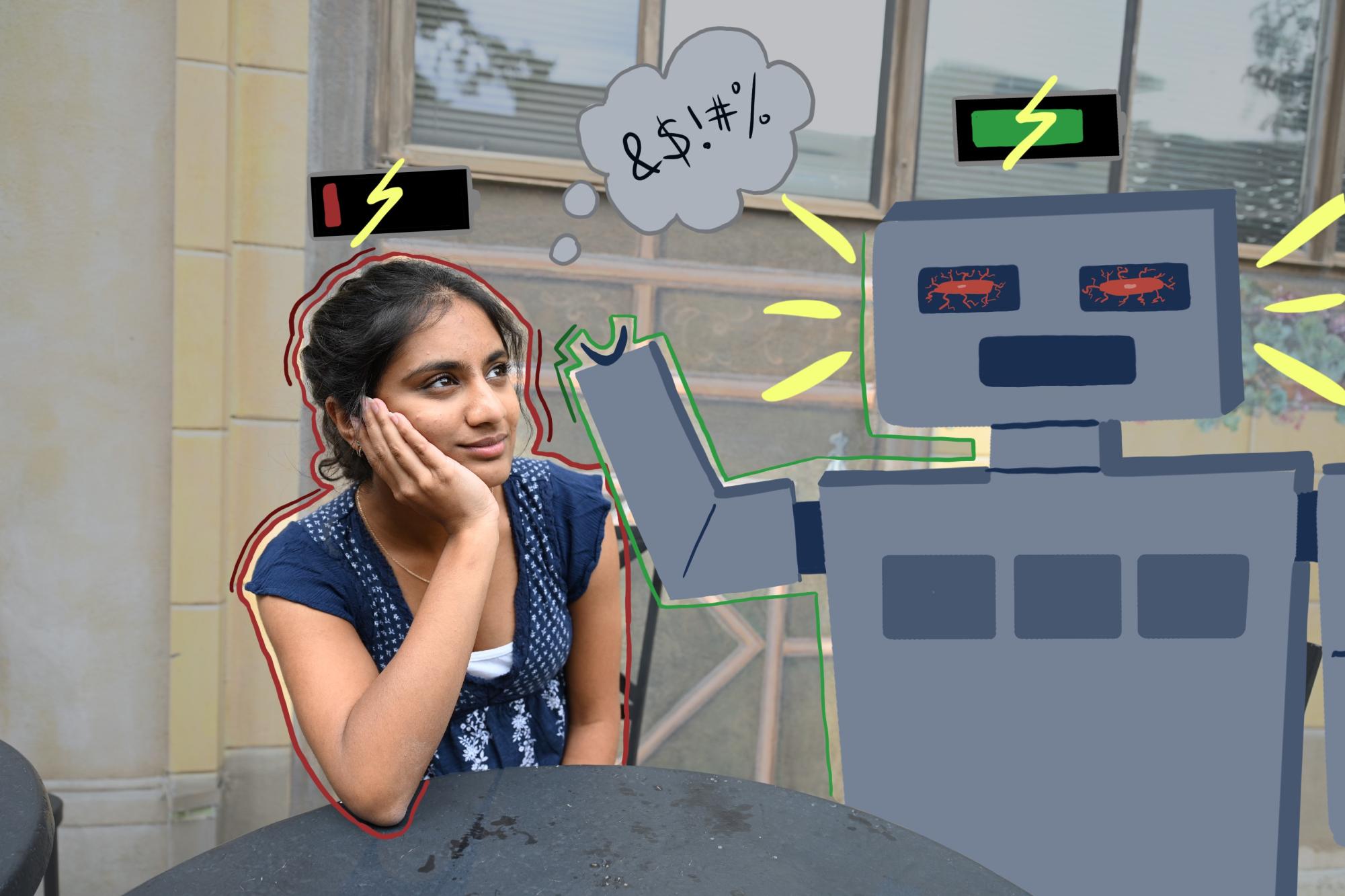Influencer Stanzi Potenza posted a YouTube Short on Aug. 20 captioned “POV: You’re a clanker in 2050.” In this video, she portrays a waitress belittling a “clanker” which arrives at her restaurant, creating a 1950s Southern aesthetic with the setting and accent she adopts.
While the video received generally positive reception, some commenters criticized how it mirrors 20th century racism towards Black people. Moreover, she uses the word “wireback” to refer to robots, a term derived from the word “silverback,” which was used in the past to dehumanize Black people.
“It feels like people are trying to commodify actual oppressed people’s suffering and turn it into something that they can joke around with,” Language and Linguistics Club officer Jessica Hu (12) said. “The use of ‘clanker’ is primarily by people who are not of a minority status, and they want to have a reason to insult people. It’s like they want the opportunity to say their own minority-associated slur.”
For some, the trend of demeaning robots may be an outlet for them to express their resentment towards minorities in a socially acceptable way, Jessica says.
“They think what’s happening is that they don’t have the freedom of speech to demean minority groups,” Jessica said. “But they still have the feelings of hatred in their heart, so they instead need to project those feelings onto some other topic.”
Potenza’s video contributes to a trend where creators denigrate robots and AI as “clankers” and similar insulting words, contributing to over 26,000 posts under the tag on TikTok and 5,000 posts on Instagram. While use of the term “clanker” itself may be rooted in more racially loaded sentiments, resentment of AI stems from a genuine discontent with its ubiquity.
“Of course, AI is a fantastic technology and there are a lot of really good applications,” AI club officer Tarush said. “But at the same time, there’s a lot of ‘slop’ posted on the internet. As a result, people are starting to get disillusioned with the world of AI.”
While AI began as an exciting new technology, much of the general population has grown jaded, with the increasing visibility of AI’s mistakes, low quality outputs and overhyped corporate promises on the internet.
Although AI generally lacks the competence of a human worker, it may be capable of automating enough tasks to upset the job market in certain sectors — another source of fear and resentment towards AI. A Stanford paper indicates that AI has already caused a 13% relative decline in entry-level work, particularly customer service and software engineering. Employees at companies like Microsoft, Google and SAP face layoffs as corporations embrace automation and shift resources and new hires towards AI.
These two sentiments — that AI is incompetent, and that AI is taking jobs — are not mutually exclusive. Rather, corporations may be incentivized to replace human labor with AI to cut costs, even if it produces inferior results.
“It’s not the AI, it’s the corporations that made the AI,” English teacher Susanne Salhab said. “AI is not sentient, so the anger is misplaced. It’s the corporations that are taking the jobs away to begin with, who are trying to find a shortcut so they don’t have to pay someone a salary and benefits.”
Salhab argues that this anger towards AI is not trivial, cautioning against the dangers of letting excessive hostility fester.
“When people use the word ‘clanker,’ I worry because hatred is such a strong emotion,” Salhab said. “It can lead people to take violent actions, and that leads us to places that we can’t come back from. I would rather they find something that they’re passionate about that they could be building, instead of spending their time tearing down.”


